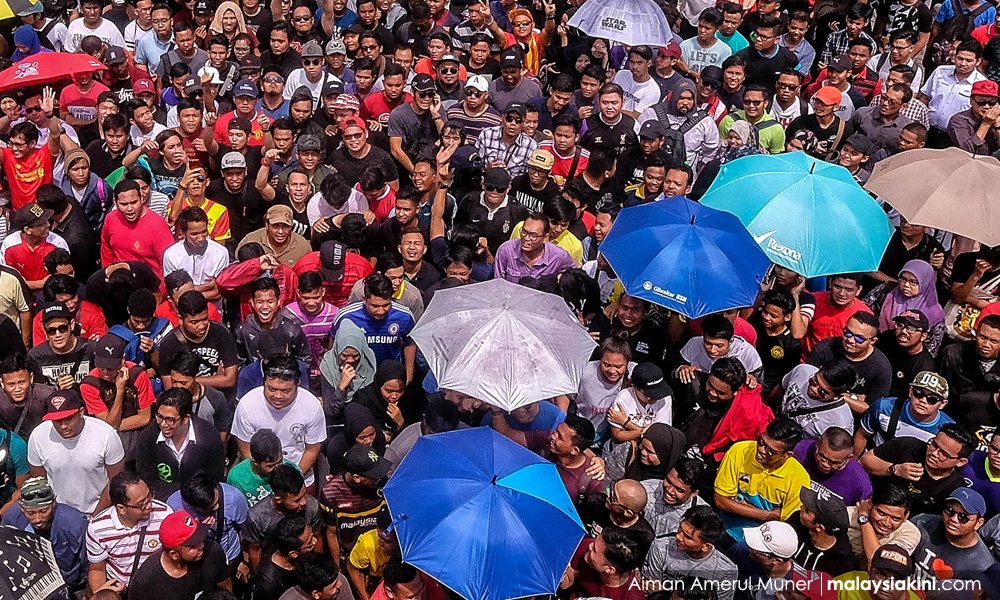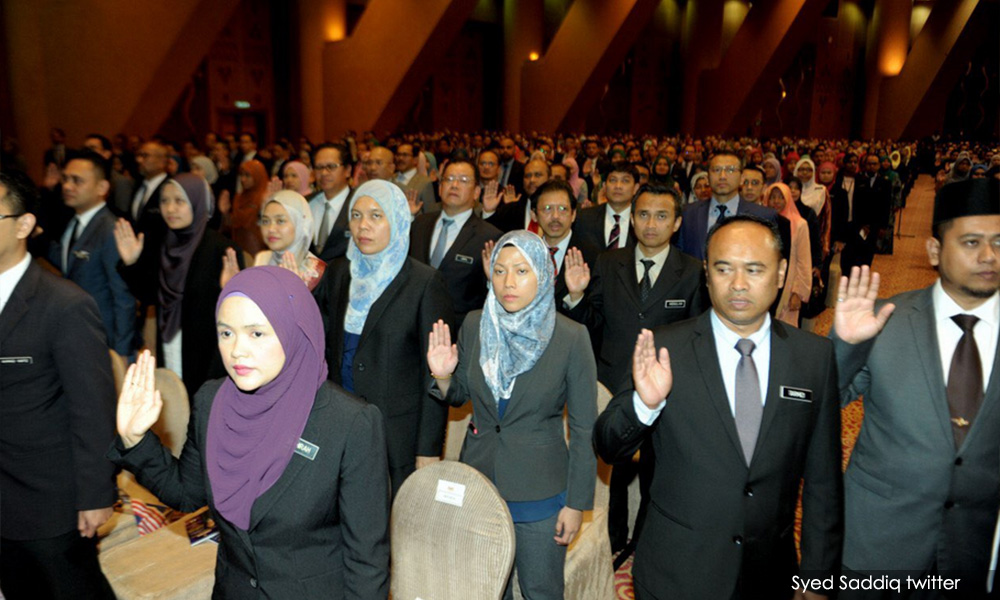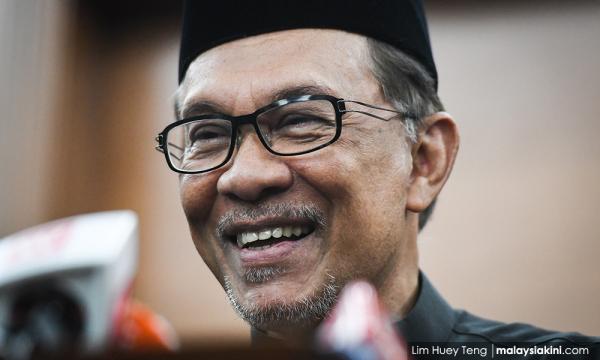COMMENT | In all my work and writing during the past 20 years, readers will have noted that my major concern is for Malaysia to become a fully developed nation in all the key aspects of life - economic, socio-cultural, political and educational.
Towards this end, I have provided numerous press statements, given umpteen talks and speeches, and written hundreds of articles and a book on how to attain what may be described as my own version of Vision 2020.
It is a vision which I believe is shared by the overwhelming majority of moderate and progressive Malaysians, especially among the younger generation which I am in constant touch with through the scholarship system I have sponsored for the past decade.
Now that Anwar has won the Port Dickson by-election, it is necessary for me to emphasise again on what are the crucial policies and strategies that the heir apparent prime minister has to articulate and implement to bring about the realisation of a united and progressive Malaysia Baru.
Language policy
Continuing attempts by Malay ultras to downgrade the use of other languages, especially English and Mandarin, are not only counter-productive but will end with the Malay community itself being left out in the global economy and world of knowledge, science and technology.
Anwar should realise that his standing among leaders in the region and world is partly or even mainly because of his ability to communicate in English.
Nobody is disputing the role of Bahasa as the national language. But English is the universal lingua franca par excellence and whoever is the prime minister of the country needs to make sure that all young Malaysians from an early age master the language to propel us into the club of advanced nations.

Anwar should make sure that the policymakers do not continue to go back and forth on this issue. Further pandering to the Malay language chauvinists will see the Malay community regress rather than progress.
Malay rights
Anwar and other Pakatan Harapan Malay politicians must bear in mind that the use of Malay rights - constitutional and extra-constitutional - to enrich the Malays is not only wrong. It will never work. You can never legislate the poor from penury into wealth and prosperity.
Worse is to take away from those who have worked hard and accumulated assets and savings to put into the pockets of those that are seen to be needy.
The ultimate foolishness is to do this on a racial basis as was attempted by the NEP (New Economic Policy) during the past 40-odd years after May 1969.
All the analyses by foreign and local scholars point to the fact that the NEP and follow-up racial policies have been the breeding ground of abuse of power, mismanagement of the economy and super corruption, cronyism and patronage.
The NEP has been a major contributor to the falling back of our economy and society to its present low level as compared with Singapore, Taiwan, South Korea and other countries that were in fact at a lower or similar stage of development in the 1970s.

I am sure that Anwar is fully aware of this. He has in the past, when he was in the opposition, talked about the need to do away with the NEP and a racially configured national economic policy. Now that he is at the point of becoming the prime minister he must not back down from his previous statements and promises on rejecting the NEP for a truly Malaysian agenda.
On the contrary, he must act boldly to make the Malaysian agenda a reality.
Restore meritocracy in public sector
During my time in the 50s and 60s as a student and young engineer, it can be said that the system of meritocracy was the dominant one in Malaysia. This is the political and economic philosophy which holds that certain things, such as economic goods or power, should be vested in individuals on the basis of talent, effort, and achievement rather than be based on factors such as race or family relationships or political affiliation.
During the past decades of BN rule, the meritocratic system has been replaced by one based on race, political affiliation, family relations and know-who.
This has resulted in the dumbing down of the civil service as well as in inefficiency and mismanagement of the nation’s resources.
I am confident that if a study was done on the cost to the country as a result of the loss of the system of meritocracy, the figure will run into the trillions of ringgit.

Anwar must restore the system of meritocracy in the civil service so that we are not handicapped in competing with other advanced nations. For a start, I would like to propose two basic steps. These are:
- University places should be allocated based on examination results and should not be based on race or other forms of quotas.
- Entry and promotion in civil service, police and army must similarly be based on educational qualifications and working experience. There must be no political or party interference in the civil service.
Anwar now has the opportunity to lead the nation into a new era of progress, prosperity and unity. To do this, he must implement the Malaysian agenda outlined above.
I and other loyal and patriotic moderates in the country will be monitoring him closely to make sure that he lives up to the cry for reform and rejection of the BN racist policies which resulted in Harapan’s election victory and Anwar’s personal victory in Port Dickson.
Conclusion
I wish to quote the five most important sentences by Dr Adrian Rogers who has written 18 books on politics and social issues:
- You cannot legislate the poor into prosperity by legislating the wealthy out of prosperity.
- What one person receives without working for, another person must work for without receiving.
- The government cannot give to anybody anything that the government does not first take from somebody else.
- When half of the people get the idea that they do not have to work because the other half is going to take care of them, and when the other half gets the idea that it does no good to work because somebody else is going to get what they work for, that my dear friend, is the beginning of the end of any nation.
- You cannot multiply wealth by dividing it.
KOON YEW YIN, a retired chartered engineer, is a philanthropist. He is appointed to the Perak State Economic Advisory Council (SEAC).
The views expressed here are those of the author/contributor and do not necessarily represent the views of Malaysiakini.


